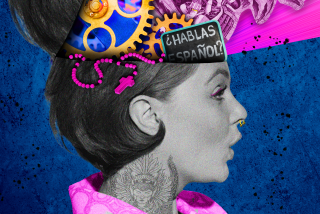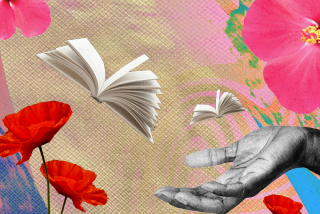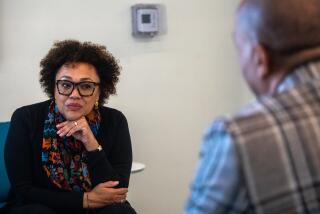Richard Blanco named Obama’s 2013 inaugural poet
President Obama has chosen Richard Blanco, the 44-year-old son of Cuban immigrants, to be the 2013 inaugural poet. He will be the first Latino poet, and the first openly gay man given the honor of reading at a presidential inauguration.
“Richard’s writing will be wonderfully fitting for an inaugural that will celebrate the strength of the American people and our nation’s great diversity,” Obama said in a statement.
Blanco arrived in the U.S. when he was a few months old and was raised in Miami. He’s a civil engineer who’s been writing poems for two decades but only recently dedicated himself to writing full time. He now lives with his partner in Bethel, Maine.
“Richard Blanco was made in Cuba, assembled in Spain, and imported to the United States — meaning his mother, seven months’ pregnant, and the rest of the family arrived as exiles from Cuba to Madrid, where he was born,” reads the biography he penned for the Poetry Foundation website.
Blanco said he’s been thinking of his immigrant family since getting the news of his appointment.
“Even though it’s been a few weeks since I found out, [I’m] just thinking about my parents and my grandparents and all the struggles they’ve been through,” he told NPR. “Here I am, first-generation Cuban American, and this great honor that has just come to me, and [I’m] just feeling that sense of just incredible gratitude and love.”
Blanco’s appearance at the inauguration also marks a closing of a circle in the Cuban American community, more than half a century after Fidel Castro and the Cuban Revolution sent thousands of people into exile. Blanco is himself the son of a conservative family — family lore has it that he was named for Richard Nixon, in honor of Nixon’s fierce anti-Communism.
Come Jan. 21, he will be reading at the inauguration of the Democratic president.
In the poem “America,” Blanco draws a quick but vivid portrait of the exile community and its resentments. He describes a visit to a market, prompted by his mother’s decision to cook pork and fried plantains on Thanksgiving Day.
These items required a special visit
to Antonio’s Mercado on the corner of Eighth Street
where men in guayaberas stood in senate
blaming Kennedy for everything — “Ese hijo de puta!”
the bile of Cuban coffee and cigar residue
filling the creases of their wrinkled lips;
clinging to one another’s lies of lost wealth,
ashamed and empty and hollow as trees.
“America” speaks, also, to the Blanco family’s ambivalence about its newfound American identity. When 7-year-old Richard tells his grandmother about Thanksgiving and the Pilgrims, she agrees to prepare a turkey, but does so “as if committing an act of treason.”
Growing up gay and Cuban American was an even bigger challenge. In the poem “Queer Theory, According to My Grandmother,” Blanco writes of the many admonitions he received growing up.
“For God’s sake, never pee sitting down…./I’ve seen you,” his grandmother says. “Don’t stare at The Six-Million-Dollar Man./I’ve seen you.” And finally: “Never dance alone in your room.”
Blanco never did stop dancing.
“At a poetry reading a woman once asked me to share something about myself that no one would know directly from reading my bio or my work,” he says on his website. “Somewhat embarrassed, I told the audience about my poetry dance -- a little Michael Jackson-inspired shtick I do around the house in my pajamas when I am high from a good-poem day.”
ALSO:
Pre-inaugural books on civics for history geeks
Eloise Klein Heaney accept L.A. poet laureate post
British publisher drops Lawrence Wright’s new Scientology book
More to Read
Sign up for our Book Club newsletter
Get the latest news, events and more from the Los Angeles Times Book Club, and help us get L.A. reading and talking.
You may occasionally receive promotional content from the Los Angeles Times.







